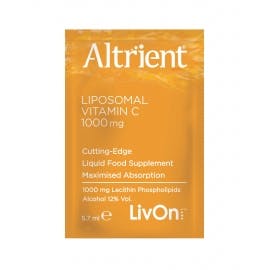Super Summer Nutrients
Getting through a scorching summer filled with family outings and boozy barbecues involves a great deal of stress management, skin care and liver support – so you need to familiarise yourself with the nutrients that help you sail through the sunshine months unscathed!
Here are our nutrient recommendations for the top three summer problem areas – stress, sunburn and hangovers with added comments from Dr Levy, a board-certified cardiologist and expert on health-related issues. Dr Levy has written six books, centred on how to restore and maintain good health in the face of the many different forms of toxicity that all of us face daily.
1. Summer stress
Summer is generally considered to be a time when you whisk yourself off to sunnier climes to relax and recharge your batteries. The reality can sometimes be somewhat different though, especially if you have children that need to be fed, hydrated, constantly amused and protected from the sun.
No matter how hard you try to switch off, these situations can bring considerable stress, which may push you to drink more alcohol and eat the kinds of foods that tend to increase stress hormones, such as sugary, highly processed foods and caffeinated drinks.
One way to avoid this outcome is to focus your dietary intake on nutrients that have been identified for their supporting role during times of stress and anxiety. Vitamin C and magnesium are typical examples of these and are easily incorporated into your summer eating plan.
According to research vitamin C has a role to play in helping manage levels of stress hormones in the blood, support blood pressure and help alleviate the body’s response to stress(1). Additionally, research shows that mental and physical stresses promote magnesium elimination from the body(3).
Dr Levy says, “Magnesium is an essential ion for health, it plays an important role in the physiological function of the brain and heart and may contribute to lowered blood pressure.”(4)(5)
The best way to make sure both you and your family get enough vitamin C and magnesium is to eat at least five portions of fruit and vegetables a day. This shouldn’t be too difficult during the summer months as salads and fresh fruit are generally abundant and particularly appealing when the temperatures are rising.
2. Sun burn
After a long, wet winter, most people are more than happy to head for the sun to take advantage of its powerful solar energy. However, it’s important to remember that whilst the heat may feel good, your skin should be protected from the harsh effects of the suns UVA rays, which is where vitamin C may be helpful.
Vitamin C is an important antioxidant, as it neutralises free radical oxygen, it becomes oxidised and has thereby neutralised itself(6). These important antioxidant properties help to neutralise any free radical damage potentially caused to the skin cells by excessive sun exposure. Tackling UV radiation with effective sunscreen products and adequate antioxidant protection may help to lower the risk of sunburn.
Although there is an abundance of fruit and vegetables containing vitamin C, nature sometimes needs a helping hand especially at times when healthy food options take a back seat in the face of too many holiday temptations! Supplementing is an easy option and gives added protection and peace of mind, especially if you choose liposomal vitamin C for maximised absorption.
3. Liver support
Summer barbecues wouldn’t be the same without an accompanying beer, glass of summer wine or even a colourful cocktail to add to the overall enjoyment of an afternoon spent in the sun. However, too much alcohol too often places a tremendous strain on your liver.
Dr Levy explains, “The liver is designed to protect your body from toxins like alcohol, filtering all the blood that is absorbed from the gut before it ever reaches the rest of the body. As an organ, the liver is the most important defender of the body against the continuous onslaught of toxins coming from your diet and the environment. And it is the ability of the liver to utilise antioxidants such as glutathione (GSH) and vitamin C in this toxin defence that allows it to perform this protective role so effectively. Biologically, there is a powerful synergy between vitamin C and GSH as they recharge and enhance each other. In fact, one of the most important functions of vitamin C is to help maintain normal GSH levels inside the cell.”
If you are planning a boozy summer, then it’s advisable to supplement with liposomal forms of vitamin C and GSH to help give your liver some support. Gaining vitamin C from your diet is relatively easy but increasing your intake of GSH isn’t so straight forward. Glutathione is a three amino acid peptide, which consists of the amino acid building blocks: cysteine, glycine and glutamine.
Dr Levy says, “Apart from IV infusions of GSH and oral liposomal GSH that deliver intact GSH directly into the blood, the only reliable way to boost blood levels of GSH requires supplementation with glutathione building blocks. This is because gastric juices breakdown/digest GSH into its constituent amino acids before it can enter the bloodstream. As a result, in human subjects, orally administered GSH has been shown to result in no significant increase in plasma levels. Depressed GSH levels in the liver are intrinsically linked to liver disease and liver damage. When GSH and vitamin C levels can be adequately enhanced with effective supplementation, liver diseases may improve, and may even completely resolve when these critical antioxidant levels can be maintained in a normal range.”
Dr Levy’s take home messages
- Many thousands of clinical and laboratory studies have clearly demonstrated the substantial importance of antioxidant therapy, especially vitamin C(6).
- There is a considerable and continually growing body of work in the scientific literature documenting the unequivocal benefits of GSH and its related compounds on a wide variety of disease processes.
- Liposome encapsulation technology not only prevents gastrointestinal degradation and assures high absorption into the blood, but it also appears to be capable of targeting the intracellular space and even further into sites within the cells such as mitochondria and nuclei(7).
Please note - This article was created and edited by Nutritional Therapist Jacqueline Newson using extracts from articles and books by Dr Thomas Levy MD, JD.
REFERENCES
- Brody S, Preut R, Schommer K, Schürmeyer TH. A randomized controlled trial of high dose ascorbic acid for reduction of blood pressure, cortisol, and subjective responses to psychological stress. Psychopharmacology (Berl). 2002 Jan;159(3):319-24.
- https://www.ncbi.nlm.nih.gov/pmc/articles/PMC5452159/
- https://www.ncbi.nlm.nih.gov/pubmed/26591563
- https://www.peakenergy.com/articles/nh20140407/The-dangers-of-magnesium-deficiency/
- Magnesium in man: Implications for health and disease. Physiological Reviews 2015; 95:1-46.
- Levy TE, MD, JD (2011). Primal Panacea. MedFox Publishing: Henderson, NV.
- Milne RD, MD (2004). PC Liposomal Encapsulation Technology.Life’s Fountain Books: Henderson NV.





